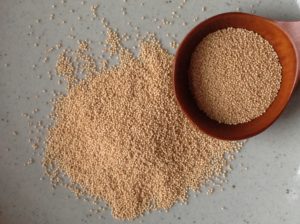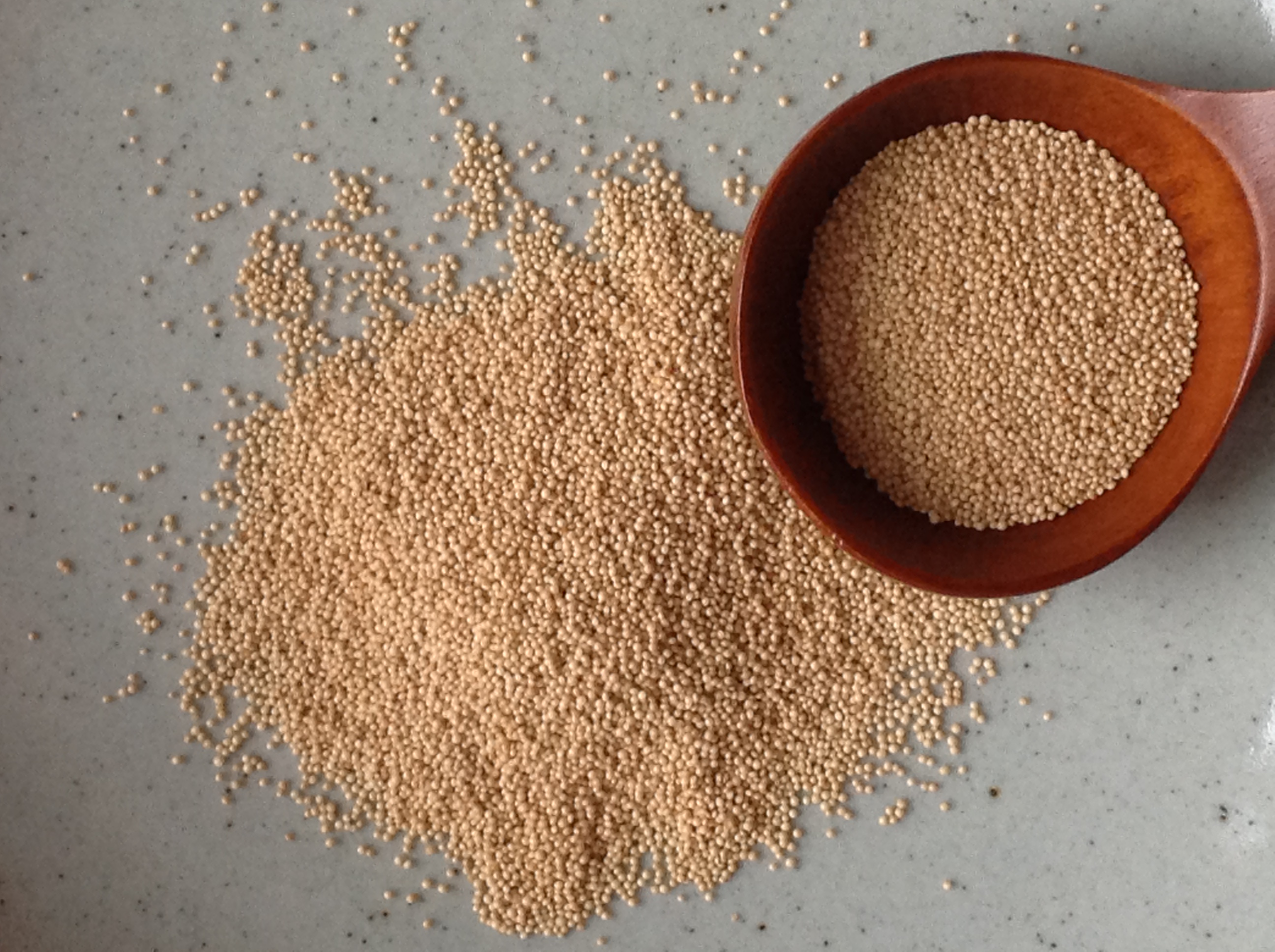
When we think about the flours to use or our main course we always try to imagine the usual cereals that you can find in our homes, such as wheat, rice, barley, spelled and corn. So often we underestimate a great deal of foods that can replace carbohydrates in our diet.
Among them is amaranth: it is not a cereal but from a nutritional point of view it can replace other sources of carbohydrates that run in our dishes. Its composition is very similar to the usual cereals and therefore balanced nutrition can safely be a good alternative, in the form of flour, as we find it.
Not being a cereal contains no gluten and so it can be perfect in the diet of people who are suffering from celiac disease. Anyway, its protein composition must be underestimated, but rather richer in amino acids than cereals. The aminoacidic feature of amanoacid is in its high content of lysine, an essential amino acid that is scarce in cereals every day. This peculiarity is not enough to make amaranth a high-protein food, but it certainly allows us to add more essential amino acids to our body, making it a very interesting food especially for those who prefer a vegetarian diet.
The high content of fibers helps amaranth to have also a glycemic index lower than other glucose foods and also makes it well digestible, so it is advisable not only for those who suffer from intestinal disorders but also for children and the elderly who have a different digestion than adults.
Always for those who tend to a vegetarian diet, it may be interesting to know that amaranth is rich in iron, compared to traditional cereals in our country. Do not underestimate the good presence of calcium, phosphorus, potassium and magnesium. Additionally, amaranth is also a good source of vitamins: in fact, it is rich in vitamin C, vitamin A and vitamins from group B. The presence of phytosterols makes it equal to many other vegetable foods an excellent food for cholesterol control.
Of the amaranth you can also cook the leaves, such as spinach, an excellent source of iron, vitamins A and C.
Those suffering from kidney disease, gout or rheumatoid arthritis should, however, must pay attention to the use of this food, as the non-negligible presence of oxalic acid can worsen the individual’s physiological condition.
As well as the flour and the seed, the amaranth can also be found in milk and oil.







